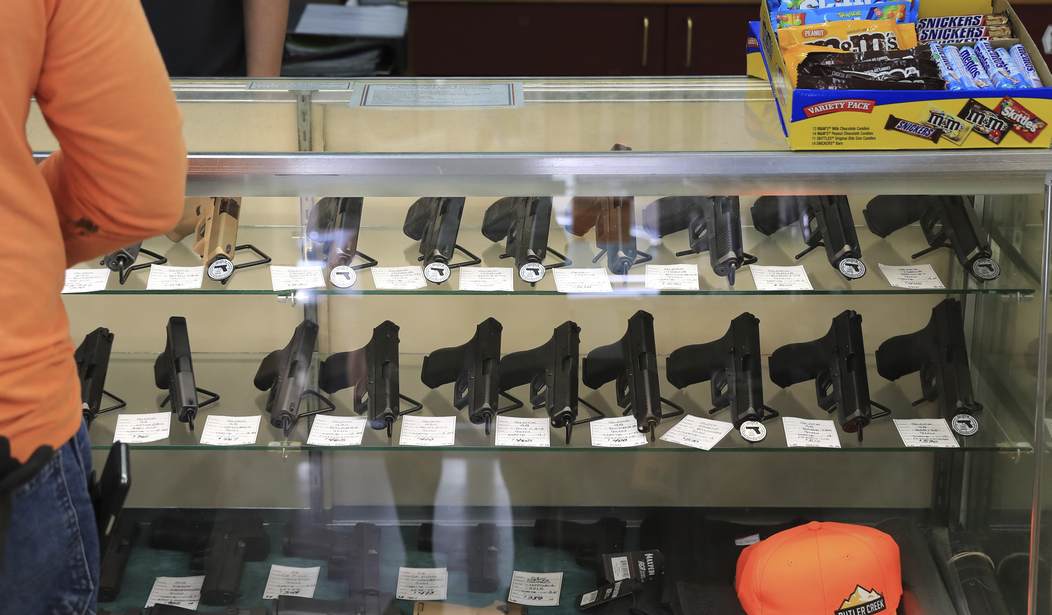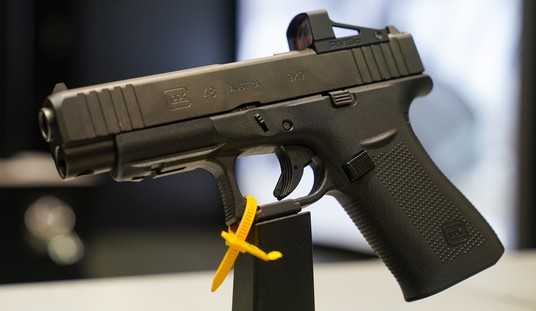While more than a dozen states have adopted laws prohibiting the use of merchant category codes for firearm retailers, California (along with New York and Colorado) have moved in the opposite direction; requiring that companies like Visa and Mastercard implement the codes in order to start scanning receipts for "suspicious" activity.
California's law officially takes effect today, but the use of those codes won't happen right away.
California’s new law requires credit card networks to make the firearms code available to banks and other financial institutions by Monday. Those entities then have several months to determine which of their business clients should be categorized as gun stores and assign them new codes by May 1.
Visa, the nation’s largest payment network, recently updated its merchant data manual to add the firearms code to comply with California’s law.
Once the codes are in effect, banks and credit card companies will be required to report "suspicious" transactions to the Treasury Department's Financial Crimes Enforcement Network. But no one has been able (or willing) to say what, exactly, a suspicious transaction looks like.
"If there was someone suspiciously purchasing a large number of firearms, right now it would be very difficult to tell," said California state Assemblymember Phil Ting, a Democrat who sponsored the new law. "You couldn’t tell if they were soccer balls or golf balls or basketballs."
The problem is that even with the code it's not possible to determine what someone is buying from a gun shop, just how much is spent. So how are these companies supposed to identify a "suspicious" purchase, and what will determine if that purchase gets investigated? According to the Associated Press, only a handful of "suspicious activities" reports actually lead to an investigation.
Banks and other depository institutions filed more than 1.8 million confidential reports in 2022 flagging more than 5.1 million suspicious activities. About 4% of annual reports lead to follow-up by law enforcement and an even smaller percentage to prosecution, according to the Bank Policy Institute, a trade group representing large banks.
... The intent of a gun merchant code is to spot suspicious patterns, like a person with little history of gun purchases who suddenly spends large amounts at multiple gun stores in a short period. Once alerted by banks, authorities could investigate, potentially thwarting a mass shooting, Munoz said.
This is a stupid concept to begin with, but it's even more ridiculous given California's gun rationing laws. The state's "1-in-30" law prohibits the sale of more than one firearm in a 30-day period, and all gun sales are subjected to a 10-day waiting period, so no one is going to be purchasing a "large amount" of firearms in a short period of time.
Gun-controlled California led the nation in the number of active shooting incidents last year, so I understand the desire to do something. The problem is that the "something" the state's adopted will likely generate more false flags than identifying actual threats. There is a workaround, however, for gun shop customers who don't want to be tracked by Big Brother
The merchant code could lead more people to buy guns with cash instead of credit in order to protect their privacy, said Dan Eldridge, owner of Maxon Shooter’s Supplies in suburban Chicago. Though his business has yet to be recategorized, Eldridge said he already has placed an ATM in his store.
"Viewed most benignly, this code is an effort to stigmatize gun owners," Eldridge said. "But a more worrisome concern is that this is another private sector end run around the prohibition against the federal government creating a gun registry."
Oh, I don't think there's much doubt that this is ultimately aimed at identifying and tracking what items people are purchasing at gun shops. The current merchant category codes don't allow for that granular level of detail, but that's the next step for gun control activists. And if California sees a surge in cash sales at FFLs across the state, don't be surprised if Democrats in Sacramento try to require the use of a credit or debit card in the future. Big Brother is watching, and he doesn't like it when gun owners find a way around his surveillance state.









Join the conversation as a VIP Member